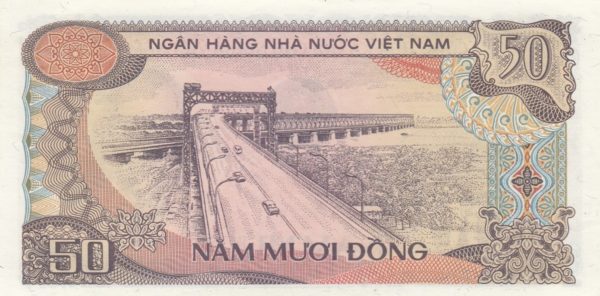A potential tariff war with an important US trade and strategic partner has been avoided.

The July 19th to July 25th, 2021 roundup of major trade developments, with L.C.
The Section 301 case targeting Vietnam for currency manipulation has been concluded – amicably, without the imposition of new US tariffs. When the US Trade Representative office completed its Section 301 currency investigation in January in the final days of the Trump administration, it determined that Hanoi was guilty of manipulation but didn’t recommend retaliatory measures, leaving the decision to the incoming Biden administration. There were domestic US pressures for and against imposing Section 301 tariffs on Vietnam, but until this week’s announcements it wasn’t clear what path the Biden administration would take.
Katherine Tai, the Biden administration’s USTR, hailed the agreement concluded by the two countries’ Treasury secretaries, saying, “I commend Vietnam for its commitment to addressing US concerns with its currency practices and setting an important example for the Indo-Pacific region…. [W]e will continue to examine the currency practices of other major trading partners.”
The USTR statement praised Vietnam for addressing the concerns of the US Treasury Department. “Vietnam will continue to increase its exchange rate flexibility over time. The SBV [State Bank of Vietnam, its central bank] also committed to continue providing information to Treasury with full transparency so it can conduct thorough analysis and reporting on the SBV’s activities in the foreign exchange market.”
Tariff war avoided
Reaching a negotiated solution to this dispute is an optimal outcome and a significant development for US trade policy. The threat of tariffs was real, and if imposed, such penalties on Vietnam would likely have provoked counter-tariffs. Vietnam imports considerable US soybeans among other goods. There would have been a WTO challenge to the US move by Vietnam, a hike to prices for US consumers, and a disruption of the broader strategic relationship. It also would have discouraged the move by US and other companies out of China to Vietnam, a dynamic the US government has been encouraging. Vietnam is also a member of the CP-TPP, the eleven-nation Trans-Pacific Partnership which many in business circles and Congress have been urging the US to join. For all these reasons, there was a strong push-back from the private sector and from Capitol Hill against the prospect of Section 301 tariffs.
But organized labor and some manufacturers pushed the other way. These forces are powerful, given President Biden’s and USTR Tai’s commitment to a “worker-centered” trade policy with labor “at the table” when decisions are made and the administration’s commitment to spurring domestic manufacturing.
WTO complaint still possible
Despite the settlement, Hanoi could still file a WTO complaint against the US for using alleged undervaluation of Vietnam’s currency, the dong, to justify countervailing duties on Vietnamese tires. Both Vietnamese exporters and US importers could now appeal the duties on tires to the US Court of International Trade on the grounds that previous accusations of dong undervaluation have been dealt with through the new agreement.
In truth, the US wasn’t and isn’t in a strong position to accuse other countries of currency manipulation. Both the Trump and Biden administration, with the complicity of the Federal Reserve, have been practicing a policy of currency deflation, as reflected in the recent worrisome rate of inflation. If the US wishes to be honest about currency valuations, the Federal Reserve and US Treasury it will need to cease manipulating interest rates and either return to a gold standard or at least a fixed monetary rule. The present policy of Federal Reserve interest rate manipulation and monetization of Treasury debt is benefiting Wall Street at the expense of working people and retirees. It is also harming investment worldwide, whose well-being is dependent on a stable US dollar.
L.C. reports on trade matters for business as well as Founders Broadsheet.

On the one hand, we don’t want currency manipulators getting the best of us. But on the other, Vietnam is fighting China’s aggressive behavior in what has become the most important part of the world, which is extremely important to us. We should support them against China in any way we can.
So, I’m viewing any monetary losses we incur with Vietnam as a form of foreign aid. Vietnam is directly in the Chinese Communist crosshairs, and unlike many of our other allies, they’re standing their ground.